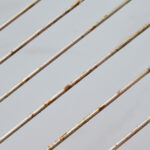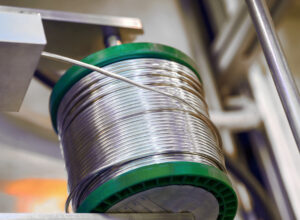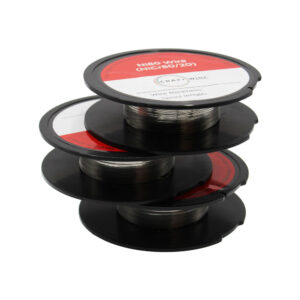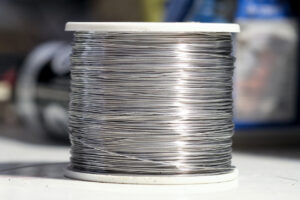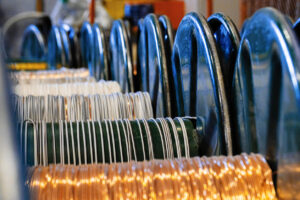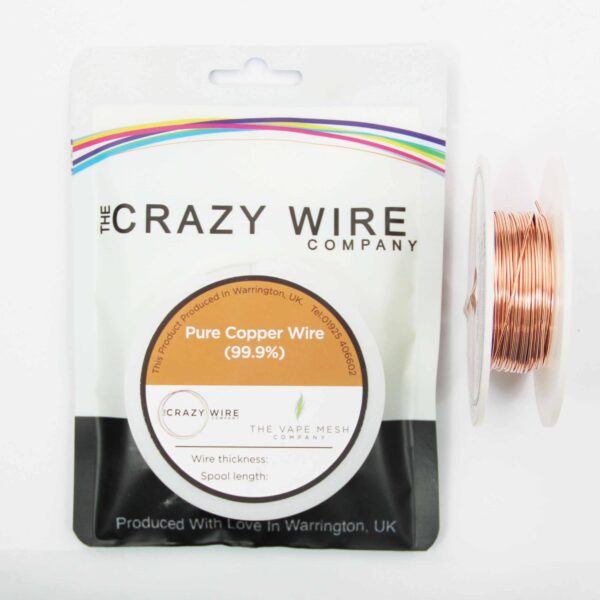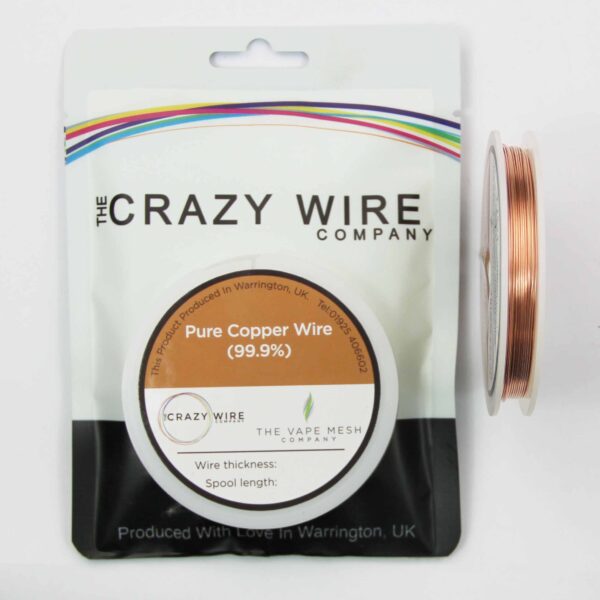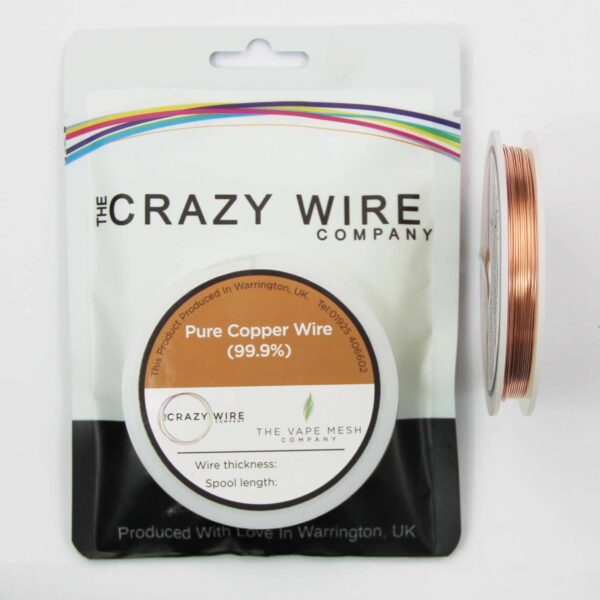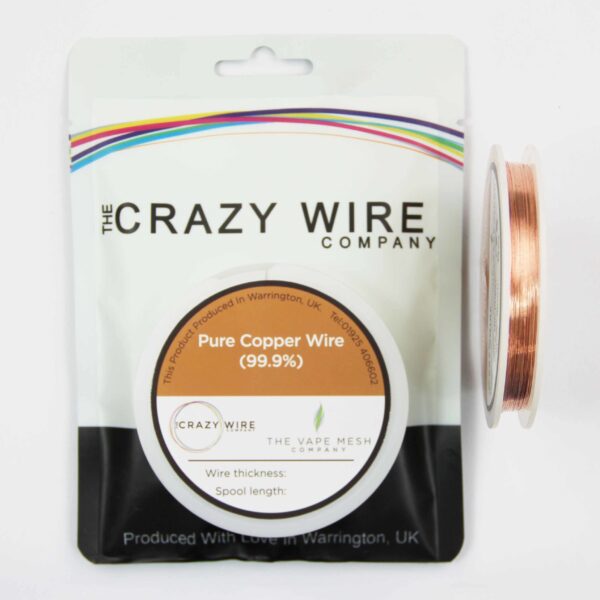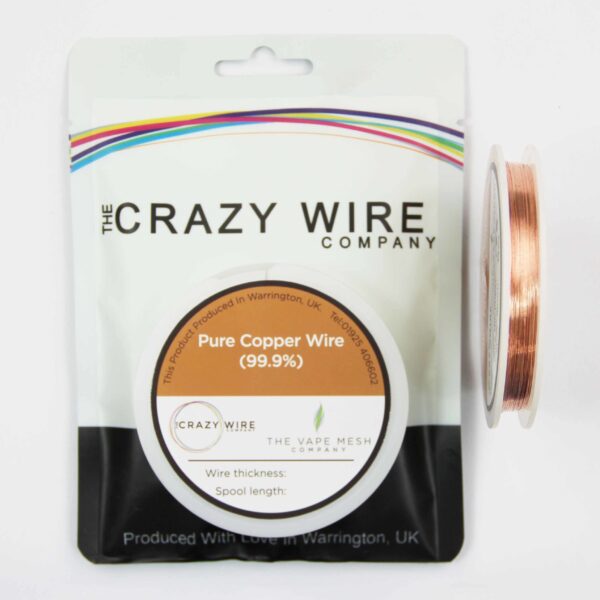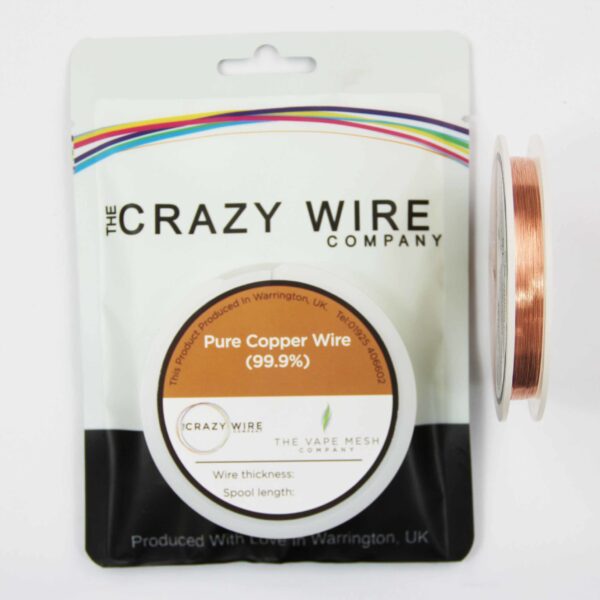If you’ve ever wondered whether copper wire is magnetic, you’re not alone. Many customers looking for magnet wire or working on DIY, crafting, or industrial projects often ask us: “Does copper wire attract magnets, or does it have no magnetism whatsoever?”
At The Crazy Wire Company, we stock 99% natural bare copper wire, so we’re here to clarify this question and help you understand copper’s role in magnetic applications.
Is Copper Magnetic?
The simple answer is no—copper wire is not magnetic. Pure copper, like the 99% natural bare copper wire we supply, does not exhibit magnetic properties under normal circumstances. Unlike ferromagnetic metals such as iron, steel, or 430-grade stainless steel, copper does not attract magnets or become magnetised.
However, copper still plays an important role in magnetic applications, particularly in electromagnets and coils. Let’s break this down.
Why is Copper Non-Magnetic?
The magnetic properties of a material depend on its atomic structure. Metals like iron and nickel have unpaired electrons that align to create a magnetic field, making them ferromagnetic.
Copper, on the other hand:
- Has a closed electron shell, meaning its electrons don’t align to create magnetism.
- Does not generate its own magnetic field and cannot be attracted to a magnet.
For this reason, copper is classified as non-magnetic.
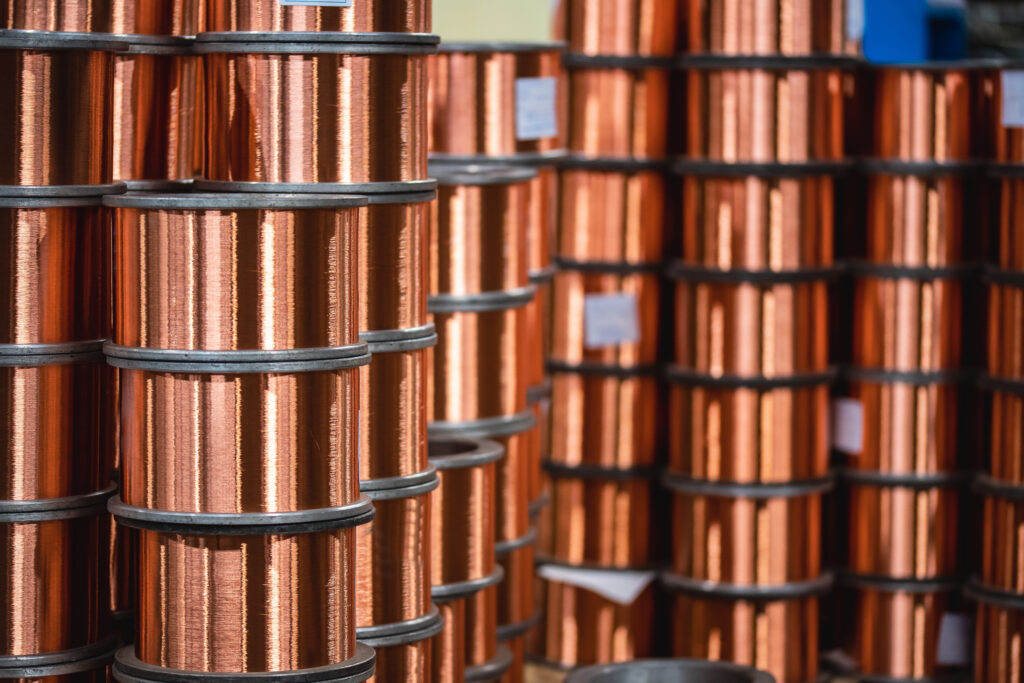
So Why is Copper Used in Magnet Wire?
Even though copper isn’t magnetic, it is the most widely used material for magnet wire—and for good reason:
1. Exceptional Electrical Conductivity
Copper is second only to silver when it comes to electrical conductivity. This allows electrical currents to flow through it with minimal resistance, making it perfect for applications like:
- Electromagnets
- Transformers
- Coils in motors, solenoids, and inductors
When an electrical current flows through copper wire, it generates a magnetic field around the wire. This is the principle behind electromagnets and coils.
2. Cost-Effective
While silver has slightly better conductivity, it’s far more expensive. Copper is affordable, widely available, and delivers outstanding performance.
3. Malleability and Flexibility
Copper wire is easy to shape, bend, and coil, which is essential for applications like:
- Electromagnetic coils
- DIY science experiments
- Crafting intricate shapes
Its flexibility means you can create precise coils for motors, transformers, and other devices without compromising on strength or efficiency.
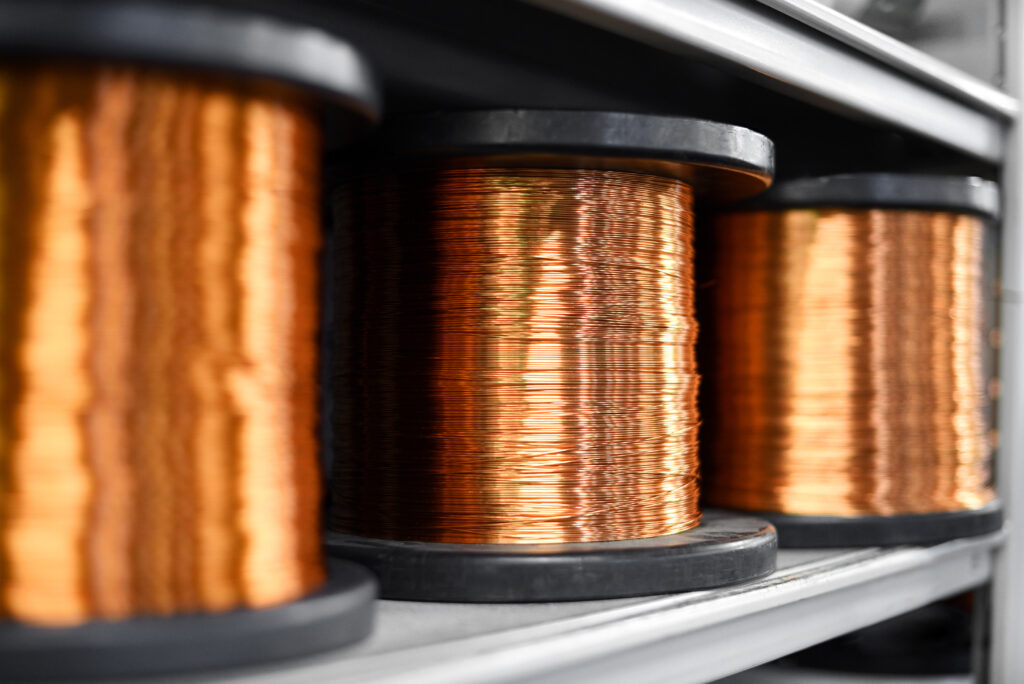
Is Copper Ever Magnetic? Special Cases
While copper is generally non-magnetic, it can interact with magnetic fields under specific circumstances:
1. Induced Magnetism in Copper
When a strong magnetic field is moved near copper, it induces eddy currents—small circular electric currents that create their own magnetic field. This phenomenon is known as electromagnetic induction and is the basis of many devices, including:
- Electric generators
- Induction heating systems
- Eddy current brakes
While copper doesn’t attract magnets, its interaction with magnetic fields allows it to play a vital role in such technologies.
2. Copper Alloys
Copper alloys containing ferromagnetic elements (like iron or nickel) may exhibit weak magnetic properties. However, pure copper, such as our 99% natural bare copper wire, remains non-magnetic.
Copper Wire vs Magnetic Wires (Ferromagnetic Wires)
Here’s a comparison between copper wire and materials that are truly magnetic, like 430-grade stainless steel:
| Feature | Bare Copper Wire | 430 Stainless Steel Wire |
|---|---|---|
| Magnetic Properties | Non-magnetic | Magnetic (magnets stick to it) |
| Electrical Conductivity | Excellent | Lower conductivity |
| Workability | Extremely flexible and malleable | Strong but less flexible |
| Applications | Coils, electromagnets, electronics | Mechanically magnetic components |
If you need a wire to interact directly with magnets, materials like 430-grade stainless steel may be better suited.
If you need high conductivity for creating electromagnetic fields, copper wire is the gold standard.
Practical Applications for Copper Wire in Magnetism
Even though copper itself isn’t magnetic, it’s vital in applications where magnetic fields are generated. Here are some real-world uses:
1. Electromagnets
When wrapped into coils and powered with an electrical current, copper wire generates a powerful magnetic field. Electromagnets are used in:
- Industrial lifting magnets
- Electric motors
- Relays and solenoids
2. Transformers
Copper wire is used to wind coils in transformers, which help transfer electrical energy between circuits using magnetic fields.
3. Inductors and Coils
Copper’s conductivity makes it perfect for creating inductive coils used in radios, power supplies, and other electrical devices.
4. Science and DIY Projects
Copper wire is widely used in schools and workshops for creating simple electromagnets or demonstrating magnetic field generation.
Example:
“Take a length of our 99% pure bare copper wire, wrap it around a nail, connect it to a battery, and watch as the nail becomes magnetised. While copper isn’t magnetic itself, the current flowing through the wire creates a magnetic field.”
Why Choose Bare Copper Wire from The Crazy Wire Company?
At The Crazy Wire Company, we supply top-quality 99% natural bare copper wire for all your electrical and magnetic applications. Here’s why we’re the preferred choice:
- 99% Pure Copper: Exceptional conductivity and performance.
- Wide Range of Diameters: Suitable for fine crafting, electromagnetic coils, and industrial projects.
- Immediate Dispatch: Fast, reliable shipping from our UK-based warehouse.
- Affordable Prices: Cost-effective solutions without compromising on quality.
- Expert Support: Need advice on choosing the right wire? Our team is here to help.
To answer the question definitively: copper wire is not magnetic.
It does not attract magnets or produce its own magnetic field. However, when electrical current flows through copper wire, it generates a magnetic field, making it the go-to material for electromagnets, coils, and other magnetic applications.
Whether you’re an engineer, a DIY enthusiast, or a crafter, our 99% natural bare copper wire provides the conductivity, flexibility, and reliability you need to bring your projects to life.

We offer also a massive range of stainless steel wire and nichrome wire through our store. Choose the wire that you want to work with and we’ll get spooling.
If you’re interested in learning more about wire, check out our other blog on Everything You Need to Know About Wires.
We are also proud to supply this product on our highly popular eBay store, check us out there too.
Thank you for checking out our site.
- MULTIBUY SAVINGS – ORDER 5 FOR 20% OFF
- FREE UK Delivery For All Orders Over £25
- Immediate Express Dispatch From Stock
- Orders Fulfilled From Warrington, UK
- Tracked Delivery with Order Updates
- 30-Day Unused Returns Accepted

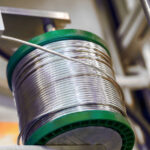
Nichrome Wire Safety: Top Tips for Working Safely
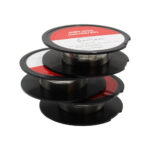
Best Wire for Electronics Projects
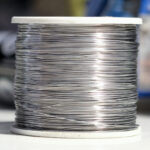
Is Ni80 Wire Suitable for DIY Heating Elements
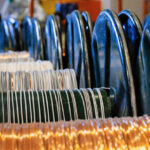
Wire Grades Explained
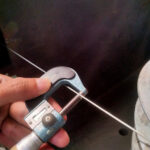
How Wire Diameter Affects Strength and Flexibility
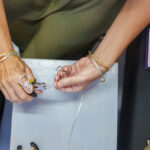
How to Cut and Shape Wire for Custom Applications

Can Wire Be Used in 3D Printing?
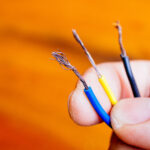
How Wire Composition Affects Conductivity
